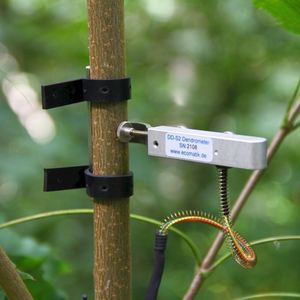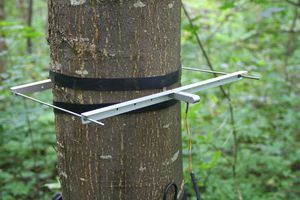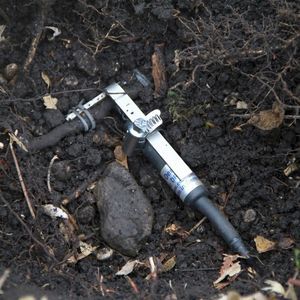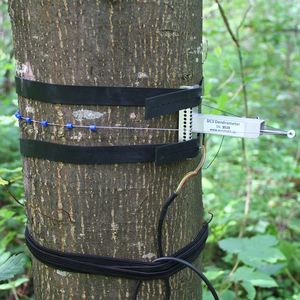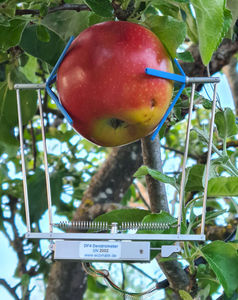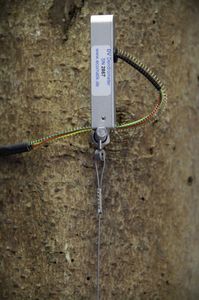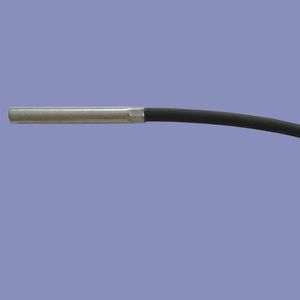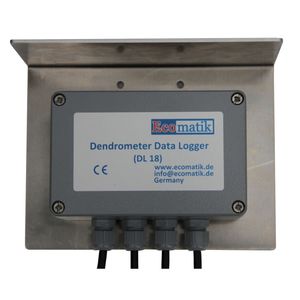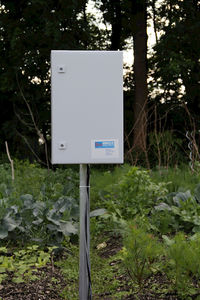
Sap flow sensor SF-G
Add to favorites
Compare this product
Characteristics
- Application
- sap
Description
Sap flow sensors are used to continuously measure water uptake in woody plants. The SF-G model corresponds to the classic, two-needle model developed in 1985 by André Granier.
Our four-needle SF-L sensor is an updated Granier sensor. The patented improvements correct the naturally occurring and time-varying vertical temperature gradients in the sapwood. Without correction (i.e. the original Granier sensor, SF-G) and despite isolation, these natural temperature gradients can lead to a temporary over- or underestimation of the measured sap flow values of up to 50% in extreme cases (cf. Do, F., & Rocheteau, A., 2002). Additional temperature measurements with the SF-L sensor enable a correction of the measured sap flow values, which prevents errors caused by the natural vertical stem temperature gradients. This results in a significantly higher accuracy and a stabler zero-point (ΔTmax) of the xylem (sap) flow.
A very helpful option to exactly determine this zero-point would be to use a dendrometer in order to continuously measure the water saturation level of the tree body. This additional measurement allows for a precise determination of zero sap flow conditions: sap flow = 0 if the relative humidity in the crown at 100% and the tree body is 100% saturated with water (no change in diameter according to the dendrometer data). The improved SF-L sensor combined with dendrometer-aided precise determination of zero flow conditions, makes a running nocturnal zeroing of the sap flow (according to Granier) unnecessary. This process enables the recording of a nocturnal xylem flow.
Catalogs
Related Searches
- Temperature management system
- Soil moisture probe
- Temperature humidity sensor
- Temperature datalogger
- Crop monitoring system
- Smart management system
- Battery-powered data-logger
- Humidity datalogger
- High-precision moisture sensor
- Soil temperature probe
- Soil datalogger
- USB data-logger
- Water temperature probe
- Wireless data-logger
- Sap flow sensor
- Dendrometer
- Dendrometer with data logger
- Battery-powered temperature probe
- Soil monitoring system
- Leaf temperature sensor
*Prices are pre-tax. They exclude delivery charges and customs duties and do not include additional charges for installation or activation options. Prices are indicative only and may vary by country, with changes to the cost of raw materials and exchange rates.






